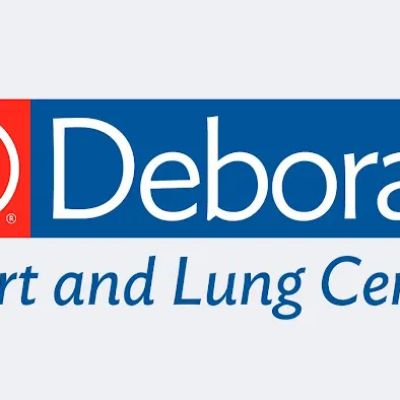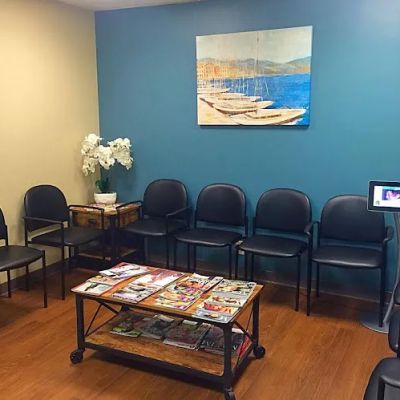How to Protect Your Heart Health as You Age
- Why Protecting Your Heart Health Is Crucial as You Age
- Adopting a Healthy Lifestyle to Support Heart Health
- Understanding the Risks of Heart Disease as You Age
- The Role of Diet and Exercise in Maintaining Heart Health
- Real-Life Stories: How Lifestyle Changes Can Improve Heart Health
- Steps to Take Now: Protect Your Heart Health Today
1. Why Protecting Your Heart Health Is Crucial as You Age
As we age, maintaining a healthy heart becomes more important than ever. I’ve learned over the years that taking care of our cardiovascular system isn’t just about managing cholesterol or blood pressure—it's about staying proactive and making heart-healthy choices every day. Heart disease is a leading cause of death for older adults, but with the right strategies, you can protect your heart and improve your overall well-being.
Why should you pay extra attention to your heart health as you age? The body changes over time, and so do the risks of heart disease. High blood pressure, high cholesterol, and a sedentary lifestyle can increase these risks. But with the right knowledge and actions, you can significantly reduce your chances of facing severe heart issues later in life. It all starts with understanding the risks and taking small, but impactful steps to protect your heart.

2. Adopting a Healthy Lifestyle to Support Heart Health
One of the best ways to protect your heart health as you age is by adopting a heart-healthy lifestyle. I remember when I started incorporating healthier habits into my life, I didn’t expect to see such big changes right away, but over time, it made a significant difference. Healthy habits help lower the risks of heart disease and improve overall quality of life.
Here are a few essential lifestyle changes to consider:
- Quit Smoking: If you smoke, quitting is the most impactful change you can make to protect your heart. Smoking damages blood vessels, raises blood pressure, and lowers good cholesterol (HDL).
- Manage Stress: Chronic stress can negatively affect your heart health. Finding ways to reduce stress through meditation, hobbies, or socializing can lower your heart disease risk.
- Limit Alcohol: Excessive alcohol consumption can increase blood pressure and contribute to heart disease. Moderating your alcohol intake is vital for maintaining heart health.
3. Understanding the Risks of Heart Disease as You Age
As we age, the risk of heart disease increases, especially if we have certain health conditions or family history factors. It’s crucial to understand how aging affects heart health. For example, conditions like high blood pressure or high cholesterol may not show symptoms but can significantly increase the risk of heart disease.
In addition to these common factors, here are some other risks to keep in mind:
- Diabetes: Type 2 diabetes can increase the risk of heart disease. Managing your blood sugar levels and maintaining a healthy weight can help reduce this risk.
- Obesity: Carrying excess weight, especially around the abdomen, puts strain on the heart and can lead to other health issues like high blood pressure and diabetes.
- Family History: Genetics can play a significant role in heart health. If your family has a history of heart disease, it’s even more important to take preventive measures.
4. The Role of Diet and Exercise in Maintaining Heart Health
A balanced diet and regular exercise are two of the most important pillars in maintaining heart health, especially as you age. Over time, I found that small changes in diet and increasing physical activity made a world of difference in how I felt and in my overall heart health.
Here’s how diet and exercise work together to protect your heart:
- Eat Heart-Healthy Foods: Foods rich in fiber, antioxidants, and healthy fats, like fruits, vegetables, whole grains, and omega-3 fatty acids, can reduce inflammation, lower cholesterol, and improve heart function.
- Exercise Regularly: Even a 30-minute walk several times a week can significantly reduce your risk of heart disease by improving blood circulation, lowering blood pressure, and maintaining a healthy weight.
Exercise doesn’t have to be intense. Starting slow and gradually increasing your activity level can make a huge difference over time. The goal is consistency, not perfection. I remember when I started with simple walks, and today, I feel more energized than ever.
Capital Health Medical Center – Hopewell
capital health medical center hopewell
1 Capital Way, Pennington, NJ 08534, USA

5. Real-Life Stories: How Lifestyle Changes Can Improve Heart Health
It’s inspiring to hear stories of people who’ve successfully made heart-healthy changes as they age. Take the example of my friend Lisa, who was diagnosed with high blood pressure in her 50s. After making changes to her diet, cutting out processed foods, and walking daily, she lowered her blood pressure to a healthy level and felt more energetic. Her doctor was amazed at her progress!
Another inspiring story is that of George, who was in his 60s when he decided to lose weight and improve his lifestyle. Through regular exercise and a heart-healthy diet, George lost over 30 pounds and lowered his cholesterol. His cardiologist was so impressed by his commitment to improving his health that he reduced the need for medication.
6. Steps to Take Now: Protect Your Heart Health Today
Now that you understand the importance of protecting your heart health as you age, it's time to take action. The sooner you start implementing these lifestyle changes, the better your long-term heart health will be. Start by consulting your healthcare provider for a heart screening and discussing any specific risks you may have.
Remember, protecting your heart doesn’t require drastic changes overnight. Simple steps—like eating more fruits and vegetables, walking every day, and managing stress—can go a long way in preserving your heart health. Don't wait until a health scare—take charge of your heart health today!
For personalized advice and heart health support, consider consulting a healthcare provider who specializes in aging and cardiovascular care. Taking these proactive steps today can ensure a healthier tomorrow!





















Deborah Heart and Lung Center
deborah heart and lung center
200 Trenton Rd, Browns Mills, NJ 08015, USA